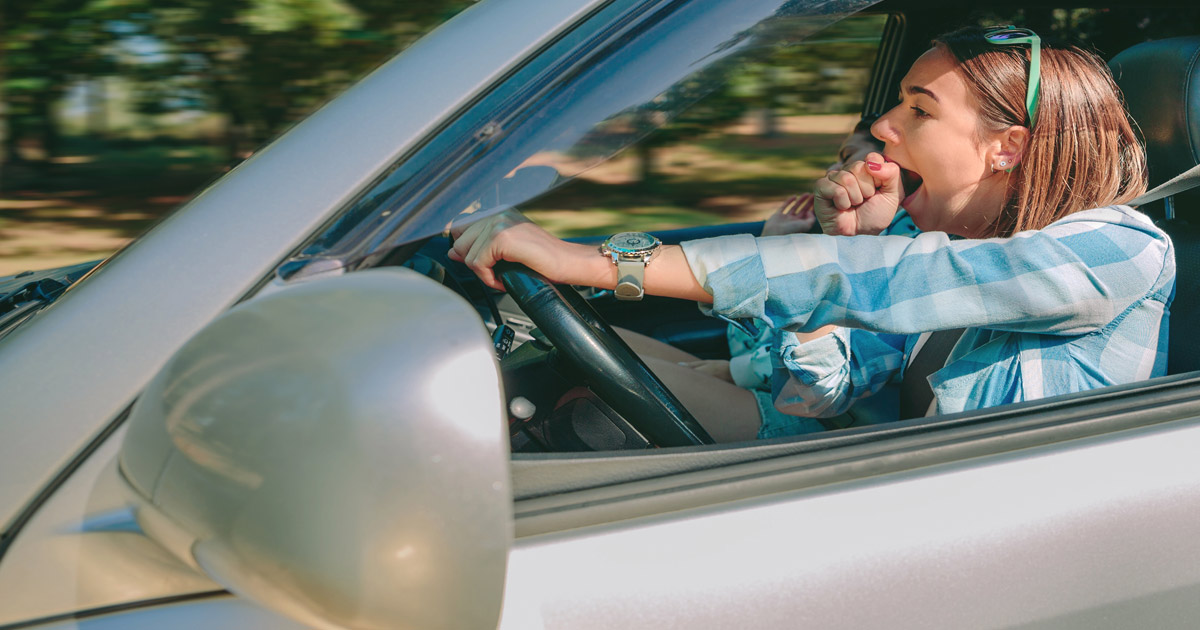Every March in the United States, 48 out of 50 states move their clocks ahead an hour to begin daylight saving time (DST). While many people look forward to that extra hour of daylight in the evening, DST may cause adverse effects as well.
Research shows that fatal car accidents increase more than six percent in the week following the spring forward time change. That disruption to the sleep schedule has a serious impact on a person’s health and wellness.
Losing an hour of sleep for DST is more than just an inconvenience. Studies suggest the switch to DST increases the risk of motor vehicle accidents in part due to sleep deprivation, disruption of circadian rhythms, and changing brightness patterns during peak traffic times.
While the average increase in fatal car accidents is around six percent, that number is higher in areas located in western and mid-west regions of the United States. In places like St. George, Utah and Amarillo, Texas for example, the rise in fatal crashes after DST is closer to eight percent.
Why the Time Change?
DST was first implemented in the United States in 1918 for a brief seven months before being repealed. Later, during World War II, President Franklin D. Roosevelt reinstituted the use of DST. The Uniform Time Act of 1966 officially established a yearly time change beginning in the spring and ending in the fall.
DST was initially established as a way to conserve energy in the evening. However, research on energy use during DST actually suggests the opposite is true. Studies found energy use either shifts from evening to morning or increases in the form of heating and air conditioning costs during extended daylight hours.
How Does DST Affect Mental and Physical Health?
Do you feel a bit anxious or stressed when it comes time to springing forward every March? Does the idea of losing an hour of sleep already have you feeling exhausted? You are not alone. The fatigue you feel in the days and weeks following the spring time change is not just your imagination.
On average, it takes one to two weeks to adjust to losing an hour of sleep. A postdoctoral fellow with the circadian and sleep epidemiology lab at the University of Colorado who studied the fatal car accident rates following DST described the effects of DST as similar to jetlag.
The abrupt change in clock time interrupts your regular sleep pattern, causing a reduction in total sleep time and compromised sleep quality. Sleep disruptions can affect your alertness, coordination, reaction time, and decision-making ability.
These side effects of sleep deprivation are not only frustrating, but they are also quite dangerous, especially when you are operating a motor vehicle. Beyond compromising your ability to drive safely, sleep disruptions caused by DST are also linked to an increase in heart attacks, strokes, and workplace injuries.
What Are the Dangers of Drowsy Driving?
According to the National Highway Traffic Safety Administration (NHTSA), drowsy driving was a factor in about 91,000 accidents in 2017. That year, about 50,000 people were injured by drowsy drivers, and nearly 800 people were killed in drowsy driving accidents. Driving while fatigued is risky, and it is considered just as dangerous as drunk driving.
Both drowsy driving and drunk driving cause cognitive impairments in similar ways. Being awake for 18 hours or more is the equivalent of having a blood alcohol content (BAC) level of 0.05 percent. Being awake for 24 hours is like having a BAC level of 0.10 percent, which is higher than the legal BAC limit.
What Are the Warning Signs of Driver Fatigue?
Signs you may be too tired to drive include:
- Drifting out of your lane.
- Forgetting the last few miles driven.
- Frequent blinking or yawning.
- Hitting the rumble strip on the side of the road.
- Missing your exit or turn.
If you are too tired to drive, stop and pull over to rest when it is safe to do so. Taking a break may prevent a car accident.
How Can I Prepare for the Time Change?
As long as DST is in place, you should actively prepare ahead of time to minimize the effects of losing one hour of sleep.
You should make sleep a priority in the days leading up to DST. Keep a sleep schedule and avoid exposure to light from screens in the evening as much as possible. To encourage deep, restful sleep, avoid drinking alcohol, eating heavy meals, and consuming anything with caffeine before bed. If you still feel drowsy after DST, take some short naps if you can to make up that lost sleep.
After the time change, be extra mindful of other drivers who may be overly tired during the morning or evening commute. Practice defensive driving, and scan the road ahead for hazards. Be ready to react to the road conditions.
What Should I Do if I am Injured by a Drowsy Driver?
If you are injured in an accident and suspect drowsy driving is involved, it is important to know your rights and preserve evidence to support your claim.
It can feel like an uphill battle to prove drowsy driving caused your car accident. In Virginia where the legal doctrine of “pure” contributory negligence is in place, car accident cases are even more challenging for plaintiffs.
Under the doctrine of “pure” contributory negligence, if the plaintiff contributes to their injuries or accident in any way, they are barred from recovering any damages. That means they receive no money for injuries, medical bills, and lost income after a car accident.
In any Virginia car accident case, the injured plaintiff should gather any documentation related to the accident. Photographs, camera footage, police reports, and other evidence are essential pieces of the puzzle that may just prove a driver’s negligence caused an accident.
After any type of crash, your health and safety should be your first priority. Once you have received medical care, consider calling a car accident lawyer who has experience in handling drowsy driving cases.
Virginia Beach Car Accident Lawyers Advocate for Clients Injured by Drowsy Drivers Following the Time Change in Spring
The upcoming spring time change is quickly approaching, and it is important that you prepare now for DST. While you can take steps to stay safe, you cannot count on other motorists to do the same. If you become injured in a DST-related accident, contact one of our Virginia Beach car accident lawyers. At East Coast Trial Lawyers, we fight tirelessly to protect our clients. Call us at 757-352-2237 or contact us online to schedule a free consultation today. We are located in Virginia Beach, and we proudly serve clients throughout Chesapeake, Eastern Shore, Hampton, Newport News, Norfolk, Portsmouth, and Suffolk, Virginia, as well as North Carolina and nationwide.


